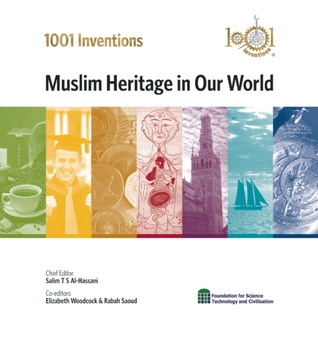
1001 Inventions: Muslim Heritage in Our World
Richard Covington
Al-Hassani, Salim T. S.
2006, Mega Basim, 978-0-9552426-1-8 (2nd ed.), $59.50/£29.50 hb
In 1993, Donald Cardwell, an eminent historian of science at Manchester University, challenged Salim Al-Hassani, an engineering professor at the university, to bring to light Muslim contributions to science and civilization, virtually ignored in the West, dating from the seventh to the 17th century. Fifteen years later, Al-Hassani has met the challenge—and then some—creating a foundation and a website (MuslimHeritage.com) that give a detailed, lively and easily understood encyclopedia of the achievements of Muslim astronomers, doctors, mathematicians, philosophers, geographers, architects and other scientists. This book is the outgrowth of a touring exhibition that reminds the world of the pivotal role Arab and Persian scholars had in European civilization, and is a gold mine of revelations: from 10th-century physicist Ibn al-Haitham’s finding that light emanates from objects and not the eye itself to the 14th-century astronomer Ibn al-Shatir anticipating Copernicus’s sun-centered theory of the solar system by more than a century. And who knew that 12th-century author Ibn Tufayl recounted the tale of a solitary individual on a deserted island some 600 years before Daniel Defoe wrote Robinson Crusoe?
You may also be interested in...

A History of Mali’s National Drink Traces Green Tea—Book Review
By tracing ritual instead of commerce, anthropologist Ute Röschenthaler shows that the story of tea in West Africa involves multidirectional routes and local agency.
Asma Khan’s Monsoon Cookbook Reclaims Taste of Home—Our Book Review
Known for her all-female kitchen at London’s Darjeeling Express, Asma Khan transforms her new cookbook into a memoir, steeped in nostalgia.